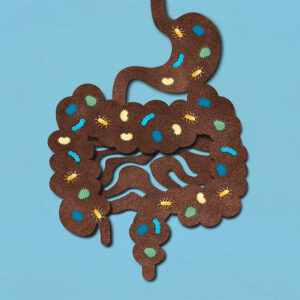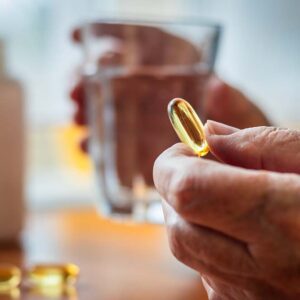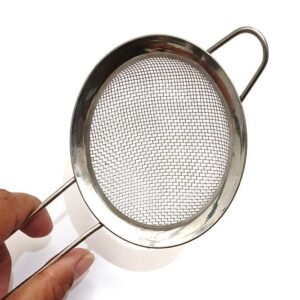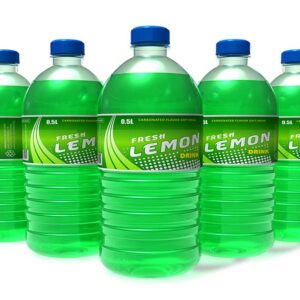
One Way to Grow A Happy Brain
- Happiness doesn’t come from the heart after all
- Grey matters most
- Grow your own happiness today!
Dear Reader,
It’s long been a human notion that happiness lies in your heart.
Time and again, people have proven this through their expressions. When you feel overjoyed or totally content, you may say something like “My heart is full.” Conversely, if you’re sad, you might say you’re brokenhearted.
One reason for this may be those warm and light feelings in your chest when you are truly happy or those sharp and aching pangs when you’re deeply sad.
As it turns out, though, your heart has little to do with your happiness — in fact, happiness is all in your head. Well, as research from Japan explains, a very specific part of your brain that is.
And what is even more incredible, the study suggests you may be able to physically grow the happy parts of your brain through a certain practice.
I will share this practice in bit. First, let’s take a closer look at what’s going on with happy brains.
![]() Gray Matters
Gray Matters
While science has had its finger on how certain hormones can affect our emotions for a while, it’s never been clear where happiness and contentment come from.
Recently, researchers from Kyoto University preformed a study to find the source of happiness once and for all.
During their quest, the scientist had 51 participants undergo MRI scans and then compete three short surveys in order to gauge their happiness and contentment with life, as well as how intensely they experience negative and positive emotions.
When the results came in, the scientists discovered that the participants who experienced high happiness scores had more gray matter in a certain part of the brain — the precuneus — than their gloomy counterparts.
The precuneus is a part of the brain that influences consciousness and self-reflection.
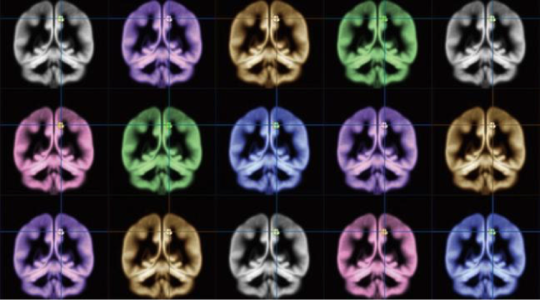
The tiny dot in the upper right portion of the brain is the precuneus — the happiness region of the brain. Photo credit: home.bt.com
The tiny dot in the upper right portion of the brain is the precuneus — the happiness region of the brain. Photo credit: home.bt.com
But what is so intriguing about this finding — it seems that you have the power to grow this part of your brain, just like a muscle, through meditation.
In fact, previous studies have shown that those who meditate may have more grey matter in the precuneus and report greater feelings of happiness and contentment.
It’s thought that the precuneus is of significance for subjective happiness — meaning the type of happiness that occurs when you “make the best of it.”
“Over history, many eminent scholars like Aristotle have contemplated what happiness is. I’m very happy that we now know more about what it means to be happy.”
“Happiness depends upon ourselves.” — Aristotle
As the research indicates, meditation maybe the quickest route to a larger precuneus.
Sato agrees, “Several studies have shown that meditation increases gray matter mass in the precuneus. This new insight on where happiness happens in the brain will be useful for developing happiness programs based on scientific research.”
While meditation may seem like an impossible task for most, the most important part is taking the first step.
There is a website that can help you find a meditation center near you. It’s called Meditationfinder.com. Simply put your location in the search box to find a center in your area.
Aristotle was right — happiness does depend upon ourselves. Get started meditating today and grow your brain happy!
Live well,

Natalie Moore
Managing editor, Living Well Daily
Ed. Note: Please send your feedback: nmoore@lfb.org – and click here to like us on Facebook.
P.S. Again, I urge you to take action and sign up for our FREE event. It may be the most important thing you do for your health this year.
This event will help you to discover the root causes of America’s growing brain health problem. Plus, it lays out a simple and easy plan to protect yourself and your loved ones.
Sources
[1] The structural neural substrate of subjective happiness
[2] The search for happiness: using MRI to find where happiness happens
[3] Dan Harris Launches New Meditation App for Fidgety Skeptics
Written By Natalie Moore
Natalie Moore is a dedicated health researcher with a passion for finding healthy, natural, and science-based solutions. After a decade of direct healthcare experience in western and natural medicine, she was involved in public health research before joining Living Well Daily.
View More Free Articles
Losing Your Locks? The SURPRISING Solution
There’s no way to sugarcoat it. Losing your hair sucks. The hit to your self-esteem is no joke. You might even find yourself avoiding mirrors and hoarding hats. The treatment options are limited, often come with a laundry list of side effects, and deliver results that are about as predictable as a coin flip. It’s...
REAL Drug-Free Back Pain Relief
Recently, I’ve had several exasperated people ask me, “Is back pain something I just have to live with?” I battled chronic back pain for years, so I completely understand why some folks feel so hopeless about finding relief. In fact, I used to think I was doomed to a life of pain and limitations, too....
Mailbag: When to Worry About Memory Lapses
“I’ve been experiencing some memory lapses recently, and I’m worried it might be early signs of Alzheimer’s disease. My mother also had it. What symptoms should I look out for?” – Ann Hi Ann, It’s important to recognize that some degree of memory loss is a normal part of life. Our brains constantly process and...
The Unforeseen Link Between Your Gut and Your Waistline
As the weather warms up and summer approaches, many of us start thinking about shedding those extra pounds… We dust off our gym memberships, stock up on salad greens, and vow to finally fit into those shorts from last year. But what if I told you that the key to achieving a healthy weight might...
Defy Aging with the Sunshine Vitamin
If there’s one thing you absolutely must do for your health, it’s to maintain healthy vitamin D levels. I can’t stress this enough. And if you think vitamin D is only good for beefing up your bones, think again. Because while vitamin D is crucial for maintaining healthy bones, recent research has revealed that this...
Detox Your Drinking Water with a Microplastics Purge
We’re surrounded by plastics. They’re everywhere, from the obvious plastic shampoo bottle to the not-so-obvious clothing on our backs. From the moment we get up in the morning until we slide beneath the sheets at night, we are in contact with them. Heck, some bedsheets contain plastic fibers, so you may ALSO be exposed while...
The TRUTH About Word Finding Troubles
Picture this. You’re having a lively conversation with a friend, and suddenly, find yourself grasping for a word that’s just out of reach. You KNOW it’s in there somewhere, hiding in the recesses of your mind. But no matter how hard you try, you can’t seem to pin it down. When you have trouble word...
FDA Finally Admits “BANNED” Soda Ingredient is Unsafe
I’m not a soda fan for MANY reasons. I wrote an entire book on the dangers of sugar, for example. And research links soda drinking to fatty liver disease, heart disease, high blood pressure, diabetes, obesity, and Alzheimer’s. And the diet stuff is no better. Fake-sugar-filled diet sodas cause “metabolic confusion,” and artificial sweeteners are...
Discover WHY We Accidentally Overeat (and How to Stop)
Picture this… You finish eating a nice meal feeling just fine. But then, 20 minutes later, you’re groaning and clutching your belly because you feel uncomfortably stuffed. If this sounds familiar, you’re in good company. Most of us have had this happen. Science reveals why accidental overeating occurs… and what we can do to avoid...
Find Exercise Exhausting and Painful? Try THIS Natural Fix
If you’ve heard it once, you’ve heard it a thousand times: “You need to exercise.” And sure, you know how vital it is to healthy aging. But let’s be honest, sometimes it feels nearly impossible to get moving—especially when you know you’ll be sore for DAYS after. However, hold on to your seat because I’ve...



